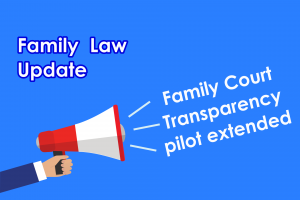Is there any advantage to cohabiting with my partner rather than marrying them – will it make any difference?
A phrase I often hear is that marriage is ‘just a piece of paper’, and I think to many it may just be that, but currently there are differences and there can be consequences you may not expect if you go down one route rather than the other.
In English Law, there is no such thing as ‘common law’ husband and wife. Whether you have lived with someone for a month, a year or 10 years, your legal position does not change. This can lead to some inequalities you may not have considered, particularly if one person in a relationship dies or the relationship breaks down.
A recent report by the Women and Equalities Committee highlights the risks faced by partners when one of them dies or their relationship ends, when they are not married and only in a cohabiting relationship.
Whether you wish to simply cohabit or get married or form a civil partnership, these are just some things you may wish to consider:
- If you have children together, it will often make little difference whether you are married or not. Nowadays, irrespective of marriage, both parents will share parental responsibility. So long as the father of your child jointly registers their birth, he will obtain parental responsibility. However, a married father will automatically obtain parental responsibility and be able to share in the decision making concerning a child and have the right to be consulted on important issues;
- If you are married and one of you dies, your husband or wife will automatically become entitled to make a claim against your estate and will inherit most if not all of your estate, but if you are cohabiting this is not the case – Your property will pass under the terms of your will or if you do not have a will to certain family members (rules of intestacy) unless your partner can show that they were living with you as if you were married or in a civil partnership for at least two years prior to death and that they were financially dependent on you just before you died. Generally speaking, if you are married, you are likely to receive far more generous financial provision;
- Similarly, if you are married, you may be able to effectively double the inheritance tax threshold for your estate – so long as the first person within the marriage who dies leaves their estate to their spouse, that spouse can utilise their nil rate inheritance tax threshold band upon their death. This is simply not possible under the current UK law for cohabiting couples;
- If your partner were to die suddenly, you may need to access monies held in their accounts quite quickly. If you are married, you may be allowed to withdraw the balance in an account held by your partner, but in comparison, if you are simply cohabiting, you will not be able to;
- One important thing to consider if you have children is the difference between cohabiting and marriage if a relationship breaks down. If you have stayed at home or given up a career to look after your children but were not married, you will not be able to make a claim against your former partner for yourself, although you will still be able to make a claim on behalf of your children. However, frequently financial provision which is made for children is time limited and you may then have to return property to your partner once the children have grown up leaving you in a vulnerable position;
- If you do not jointly own a property with your partner, any claims in respect of the property in the event the relationship ends will be mostly limited and you may have to provide evidence of your contribution, if any, to the purchase of the property to support a claim. If you are married, all property, regardless of whether it is jointly owner or not, will be considered by the court;
- If you do not own your property together, and you live with your partner in their rented accommodation, if your relationship ends and you are not married, you have no right to remain in the property, whereas if you are married you have an automatic right to remain living in the property regardless of whether your name is on the tenancy or not. As a married couple, you will be able to protect your right to live in your property by registering a matrimonial homes rights notice at the Land Registry.
- Pensions are often overlooked. It is only if you are married that you may be able to take a share of your partner’s pension in the event your relationship breaks down;
- The process of ending a cohabiting relationship can, however, be much less painful than dissolving a marriage as there is no need to apply to the court for orders unless there is some issue that needs to be resolved, whereas an application has to be made to the court to dissolve a marriage and this takes several months to complete.
But how can I protect myself if I decide to cohabit rather than get married?
The best protection for most couples who do not get married but wish to ensure that they are not disadvantaged is to enter into a cohabitation agreement. This can set out clearly the expectations and agreements the parties have in living together, and what would happen in the event the relationship ends, including how property would be divided and what, if any, payments one party would continue to make to the other.
It can be terribly unromantic when you are embarking on a new relationship or change in your relationship such as beginning to live together, and it can be easy to avoid the costs when your budget may be limited, but in many cases, entering into an agreement at an early stage can save significant costs of a dispute in the future.
If you wish to discuss any of the issues raised in this article, then please contact E J Coombs Solicitors on 01245 221 699.
Sara Barnes




